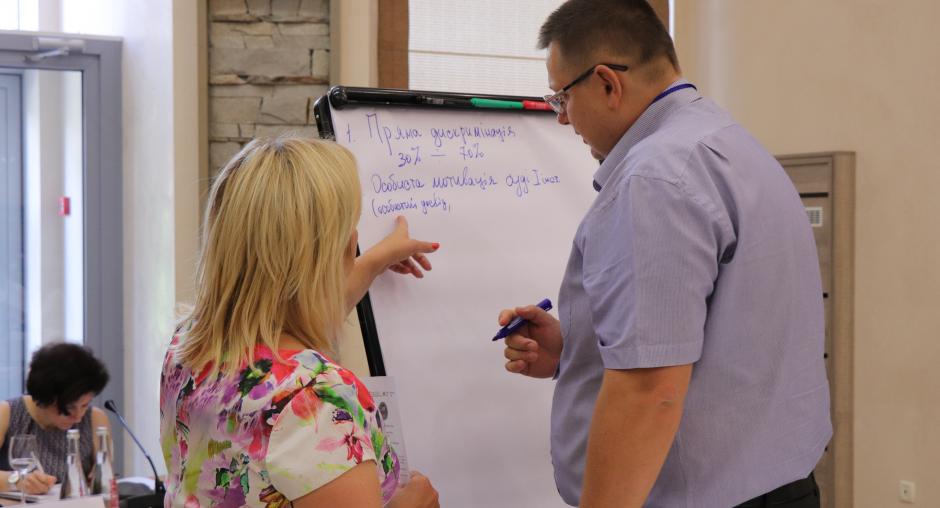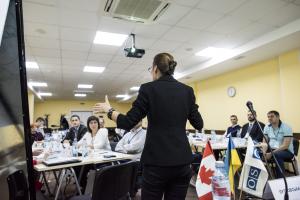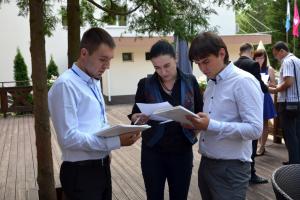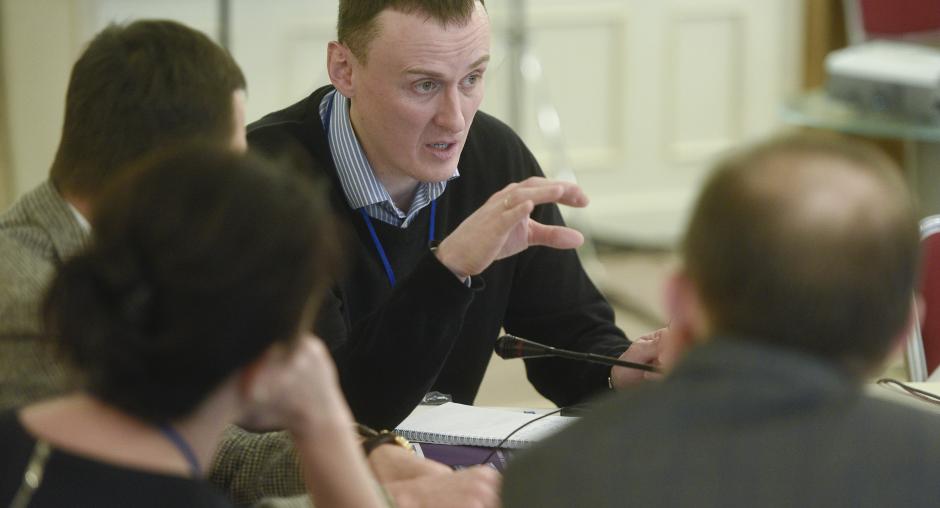OSCE helps Ukraine’s judiciary to enhance protection of human rights through better training
For the past five years Ukraine has been among the top three sources of applications to the European Court of Human Rights. Clearly, many citizens, when seeking justice on human rights issues, are dissatisfied with the decisions of local courts and seek a direct application of the European Convention on Human Rights in Strasbourg. Already in 2013, a Council of Europe needs assessment stressed the need for sustained judicial training on the application of the European Convention on Human Rights in Ukraine. In response, the OSCE Project Co-ordinator in Ukraine has been training judges on the European Convention on Human Rights since 2014, when it launched its ambitious five-year initiative to promote the knowledge and practical application of international instruments among legal professionals.
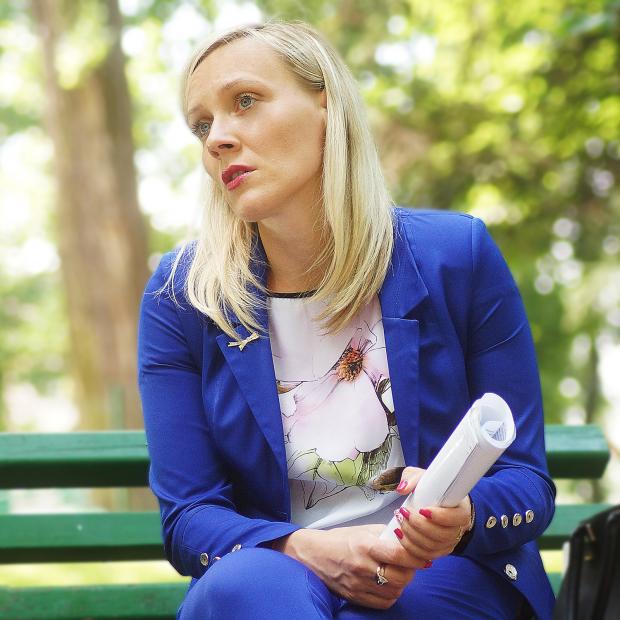 Viktoria Buchkivska, Judge in the Stryy Municipal Court of the Lviv Oblast.
Viktoria Buchkivska, Judge in the Stryy Municipal Court of the Lviv Oblast.
Viktoria Buchkivska, a judge in the Stryy Municipal Court of the Lviv Oblast, is one of more than 7,700 legal professionals trained by the Co-ordinator. She recounts how the intensive training has helped her to develop well-crafted judgements in complicated cases.
She gives the example of a recent case concerning a sanatorium in Morshyn, in western Ukraine, that had been privatized two decades ago. A company that had invested heavily to develop the sanatorium was entangled in a lengthy and exhausting legal battle when the privatization process was questioned by the state.
My ruling was based on the case law of the European Court of Human Rights and the provisions of the European Convention on Human Rights on the protection of property. After 20 years, the state cannot just reclaim the sold property back. By applying appropriate international standards, I was able to find a proportionate solution to this case.”
Viktoria Buchkivska Judge in the Stryy Municipal Court of the Lviv Oblast
A sustainable education programme
In addition to training judges in person, the OSCE Project Co-ordinator in Ukraine has developed an educational programme for legal professionals on the application of international human rights protection standards: a series of classroom courses, an online course (part 1 and part 2) and an interactive online magazine. These online education tools provide an overview of trending human rights issues for legal practice and recent ECtHR case-law, translation of landmark ECtHR cases and video lectures on case-law notions and principles.
Buchkivska, along with nearly 400 other judges who completed the OSCE training, joined the pool of experts who developed these courses. Involving practicing judges in designing and piloting the training of their own colleagues helped to ensure that the final products were as practical as possible.
 Mykola Onyshchuk, Rector of the National School of Judges
Mykola Onyshchuk, Rector of the National School of Judges
The Co-ordinator also designed a teaching methodology and handbooks to facilitate the effective conducting of these courses. All courses are now an integral part of the mandatory curriculum of the National School of Judges, the institution responsible for professional education of Ukrainian judges. As a result, the School has already used these materials to train almost 4,500 judges in human rights protection without the Co-ordinator’s support.
The most important outcome of the OSCE-supported project is the sustainability of human rights education tools. We now have the capacity to train judges on our own, without any additional external support, using the online and on-site training courses, handbooks and trainers – all of it is an result of our joint efforts.”
Mykola Onyshchuk Rector of the National School of Judges
Evaluating the results of training
The Project Co-ordinator in Ukraine has been evaluating its training efforts by monitoring judges’ rulings before and after they participated in the training. The findings show that 82% of 680 surveyed trainees began applying European Court of Human Rights case-law after the training. The overall application rate of the case-law by trained judges increased by 37.5 % between 2014 and 2017.
In April 2017, the Co-ordinator launched the first civil society-led trial monitoring programme in Ukraine. Not only does this programme promote the independent monitoring of courts, but together with the analysis of judgements it has served to establish a baseline for measuring the progress of judicial reform. The results of the monitoring of 1,400 court hearings throughout Ukraine are being used by the School of Judges and the High Qualification Commission of Judges to improve training programmes and judges’ performance evaluation procedures.
One of the recommendations resulting from the monitoring was the expansion of the network of gender equality focal points in the courts that was set up by the Project Co-ordinator in 2018. This is to be one of the areas of the Project Co-ordinator’s future work.




